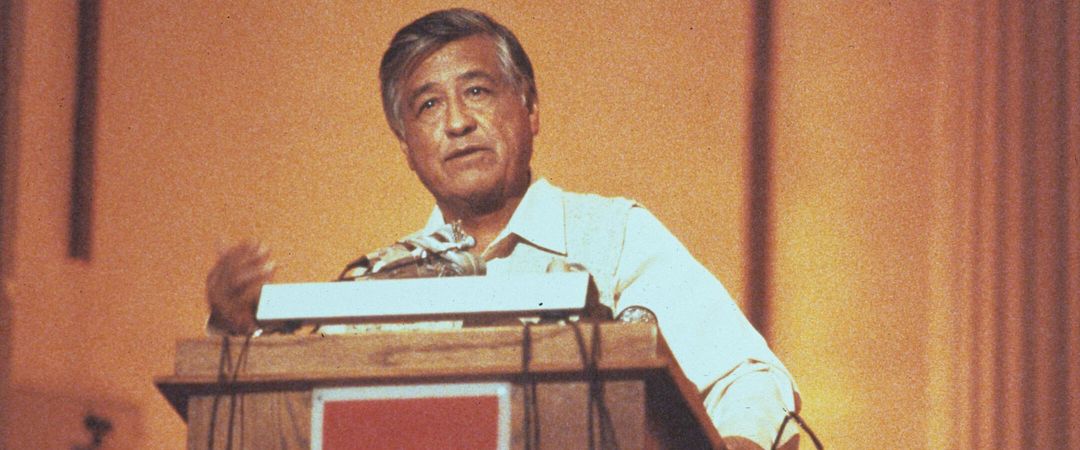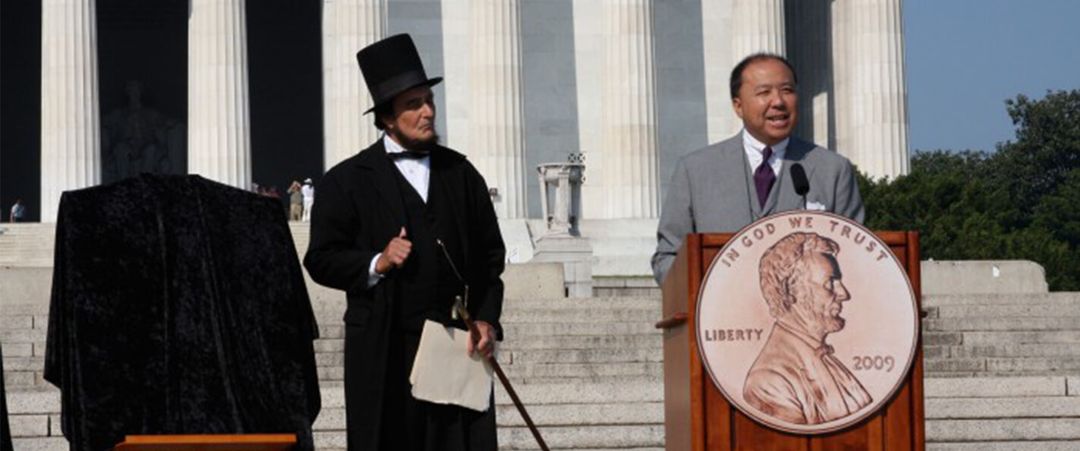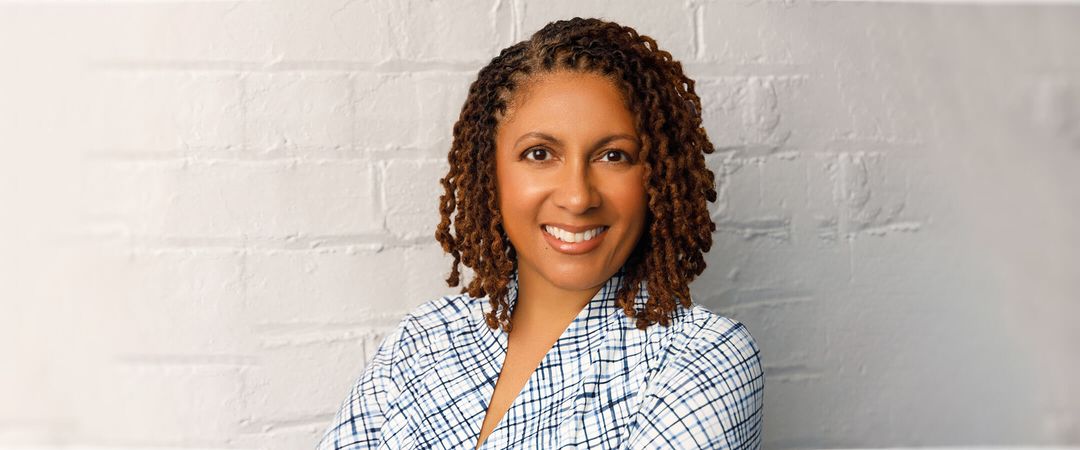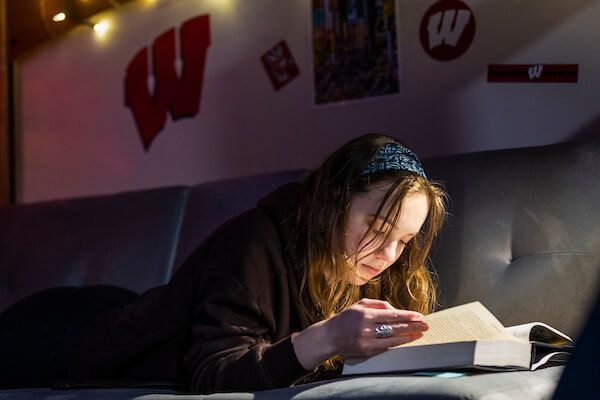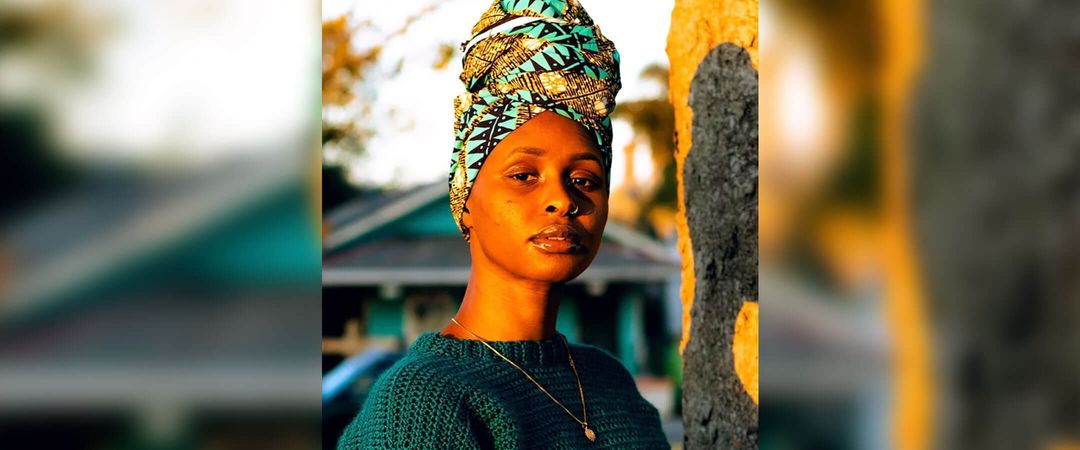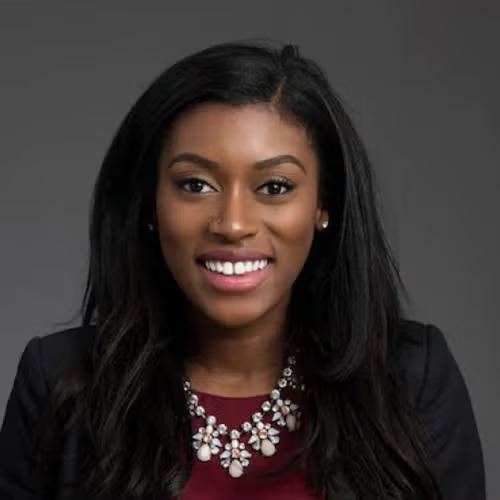In 1990 Oscar Marcelo Suarez MS’93, PhD’00, living in Argentina, sent a handwritten letter to a researcher at the University of Wisconsin–Madison, curious about his study of aluminum alloys.
Nearly 30 years later, that letter has opened a career studying the properties of metals and minerals in Madison and around the world. In that time, Suarez has published more than 130 papers on topics such as how aluminum alloys solidify and the results of melting 300 pounds of cast iron. Today, he is a professor in the materials science and engineering department at the University of Puerto Rico. The spark he ignites in students to pursue higher education, he says, is his biggest accomplishment.
Suarez directs the university’s Nanotechnology Center, which has an outreach component to bring in low-income students from surrounding public schools. Nine years after the center opened, he used its resources to help students devastated by Hurricane Maria, the worst disaster to hit the island in nearly 90 years. His work with public schools in the area — where some 95 percent of students live below the poverty line — earned him the 2020 Ellen Swallow Richards Diversity Award from The Minerals, Metals, and Materials Society.
“When [students] become familiar with me and that trust is built, they tell me they never expected to get engaged in undergrad or graduate research,” he said. “They came to the university just to get an engineering degree. Now, they are working in a lab and doing experiments, so for them it is something completely unexpected. They fall in love with it.”
A personal spark
Suarez wrote the 1990 letter to Professor John Perepezko of the Department of Materials Science and Engineering, who was studying aluminum alloys. After months of conversations back and forth, Perepezko invited Suarez to be a graduate student at UW–Madison.
Suarez describes the UW of his graduate years as a playground, where, as a teaching assistant, he could experiment with complex materials, testing and collecting data from thermal analysis.
“I love to play with fire,” he says, “how you control the solidification, and how you can get a whole bunch of properties just by modifying parameters.”
Through his years at the UW he worked with distinguished professors such as Perepezko, Carl Loper Jr.’55, MS’58, PhD’61, and Richard Heine MS’48.
He was also an active member of a now-disbanded organization called the Community Action on Latin America (CALA). The group aimed to educate people about the underlying social, political, and economic problems that are inherent with U.S. intervention in Latin America. Members staged protests, invited speakers, encouraged fair-trade practices, worked with human rights groups, and wrote thousands of letters to local officials. Their office was in the basement of the Pres House, the Presbyterian church near Memorial Library. Eventually, he became the director, and he says the organization proved to him that community involvement could change society.
“We were able to change things,” he says. “So when it came to Puerto Rico, well, I say, what am I going to do? That part of me was left in Madison, what’s here for me? And that’s why I started working harder and got involved in trying to get more people, particularly low-income students, to consider an education in engineering. … It was my incentive.”
The center
The Nanotechnology Center opened in 2008 and has five components, one of which is outreach to 16 public high schools and intermediate schools in western Puerto Rico. Studying the surrounding areas, the center found that in every school, at least 50 percent of kids came from families that were living below the poverty level. Suarez encouraged his students to visit those schools — a practice that was life-changing for both parties.
“I didn’t realize at the moment, but they went there to the school and talked to the kids and ran demonstrations,” he says. “The rapport between them and the kids in schools was natural because the kids would start asking them as if they were big sisters or big brothers: ‘Is it difficult to get [in the University]? How do I get there?’ ”
The center even has its own car, the Nanomovil. In 2017 the team used that car to deliver water and meals to families whose homes hurricane Maria destroyed, paying special attention to the schools connected to the center. For weeks Suarez worked with the National Guard to get families needed resources.
“Before being a professor, I am a public employee. I need to return that to the community. I learned that in Wisconsin,” Suarez says.
The graduate students are now implementing mentoring and outreach into their post-university lives. And Suarez finds students from nearby schools often enroll in the engineering program at the University of Puerto Rico. One student started in the research group when she was 16 and has now graduated with a PhD from UW–Madison.
Today, Suarez and his wife, Jaquelina Alverez — the former head of acquisitions at College Library in Helen C. White Hall — live on the western side of the island. He works with nine graduate students who study welding aluminum, energy harvesting, contamination clean-up, and concrete reinforcement.
Suarez hopes to travel back to Madison at some point so he can accept his 2020 College of Engineering Distinguished Achievement Award, which illustrates the impact that UW engineers have across multiple fields and international boundaries.
“It is important to create that spirit of discovery at an early age,” he says.

